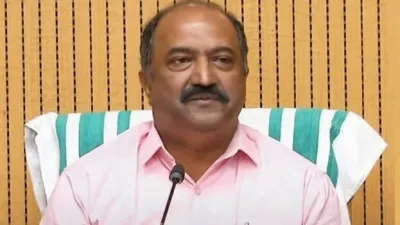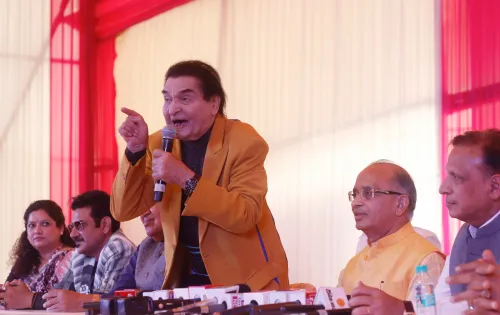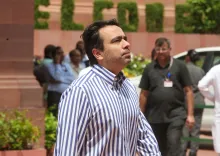Should GST Relief Benefit Citizens Instead of Companies?

Synopsis
Key Takeaways
- GST reductions should benefit the general populace.
- Kerala faces a revenue loss of Rs 4,500 crore.
- Monitoring is essential to ensure real benefits for consumers.
- Concerns over lottery tax increases affecting livelihoods.
- Political motives may influence tax policy changes.
New Delhi/Thiruvananthapuram, Sep 4 (NationPress) The Finance Minister of Kerala, K.N. Balagopal, emphasized on Thursday that the advantages stemming from the Goods and Services Tax (GST) reductions should directly benefit the general populace rather than being hoarded by large corporations.
The forthcoming changes are set to be implemented later this month.
He cautioned that the state government will keep a vigilant eye on whether the recent tax cuts actually benefit consumers.
“The common people must see the benefit. Companies should not exploit the decision by raising prices. The government will intervene to ensure that the relief reaches those who need it most,” stated Balagopal.
The minister raised concerns regarding the Centre's failure to address potential revenue losses for the states during the announcement of tax reductions.
Kerala anticipates a revenue shortfall of almost Rs 4,500 crore, primarily due to cuts on automobiles, cement, and other commodities.
“The Centre has provided no assurance on compensating states. This is not merely about making grand announcements like demonetization; it’s about the tangible impacts on state finances,” he remarked.
Balagopal also criticized the GST Council's decision to hike the tax on lotteries from 28 percent to 40 percent, describing it as a significant setback for the sector.
“Nearly two lakh people rely on lotteries for their livelihood. We anticipated relief when this matter was discussed in the GST Council, but instead, the decision has hit us hard,” added the first-time legislator now serving as Finance Minister in Kerala.
The state has requested that decisions regarding lottery taxation be entrusted to individual states, given Kerala’s economy's unique reliance on this sector.
A special meeting will soon be held to explore solutions to the challenges facing the industry.
The minister reiterated that the GST concessions must not disproportionately favor large corporations.
“The state government will ensure that the relief does not solely enrich big companies while ordinary citizens are overlooked,” he assured.
Balagopal also suggested that the rapid implementation of the GST reductions may have political undertones, with upcoming elections potentially influencing the Centre's decisions. “The timing cannot be ignored,” he added.









